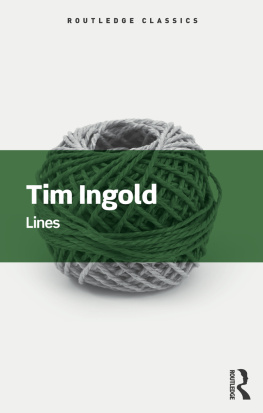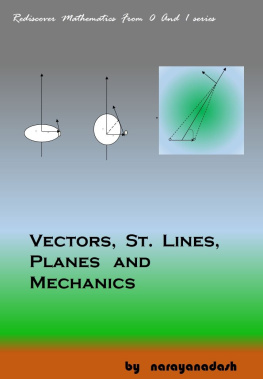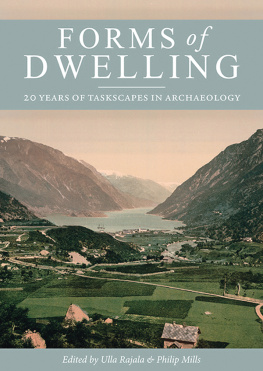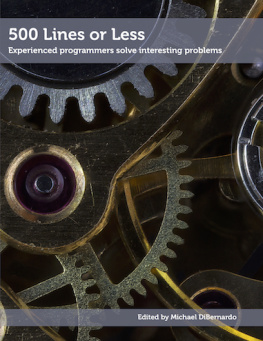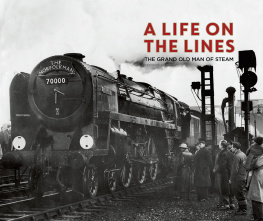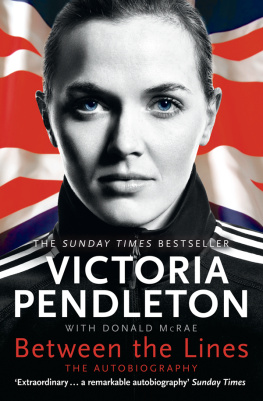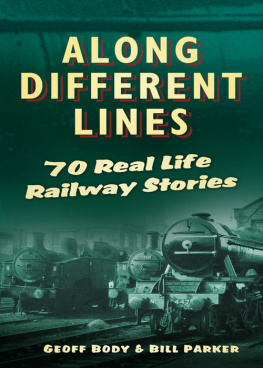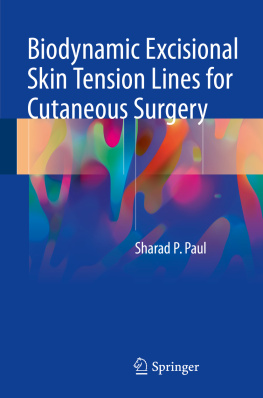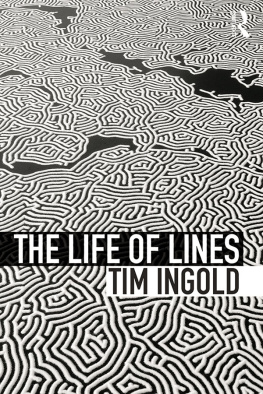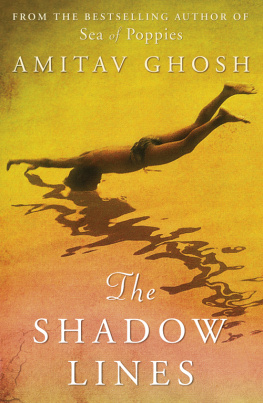Ingold Tim - Lines
Here you can read online Ingold Tim - Lines full text of the book (entire story) in english for free. Download pdf and epub, get meaning, cover and reviews about this ebook. publisher: Routledge, genre: Religion. Description of the work, (preface) as well as reviews are available. Best literature library LitArk.com created for fans of good reading and offers a wide selection of genres:
Romance novel
Science fiction
Adventure
Detective
Science
History
Home and family
Prose
Art
Politics
Computer
Non-fiction
Religion
Business
Children
Humor
Choose a favorite category and find really read worthwhile books. Enjoy immersion in the world of imagination, feel the emotions of the characters or learn something new for yourself, make an fascinating discovery.
- Book:Lines
- Author:
- Publisher:Routledge
- Genre:
- Rating:4 / 5
- Favourites:Add to favourites
- Your mark:
- 80
- 1
- 2
- 3
- 4
- 5
Lines: summary, description and annotation
We offer to read an annotation, description, summary or preface (depends on what the author of the book "Lines" wrote himself). If you haven't found the necessary information about the book — write in the comments, we will try to find it.
Lines — read online for free the complete book (whole text) full work
Below is the text of the book, divided by pages. System saving the place of the last page read, allows you to conveniently read the book "Lines" online for free, without having to search again every time where you left off. Put a bookmark, and you can go to the page where you finished reading at any time.
Font size:
Interval:
Bookmark:

... this is a vibrant read at times when reading I shouted aloud, Yes, spot on! At other times I paced the room and exclaimed in frustration No! That Ingolds writing can produce such dramatic effects is a testament to the quality of his argument. Do I recommend reading this book? Definitely.
Cambridge Archaeological Journal
... it is difficult to see the world the same way after reading this book. As Ingold shows, earlier conceptions of speech and writing were intimately interconnected with movement, and as wayfarers journey through the world, neither they nor the books reader are the same as when they started... Highly recommended.
CHOICE
What do walking, weaving, observing, storytelling, singing, drawing and writing have in common? The answer is that they all proceed along lines. In this extraordinary book Tim Ingold imagines a world in which everyone and everything consists of interwoven or interconnected lines and lays the foundations for a completely new discipline: the anthropological archaeology of the line.
Ingolds argument leads us through the music of Ancient Greece and contemporary Japan, Siberian labyrinths and Roman roads, Chinese calligraphy and the printed alphabet, weaving a path between antiquity and the present. Drawing on a multitude of disciplines including archaeology, classical studies, art history, linguistics, psychology, musicology, philosophy and many others, and including more than seventy illustrations, this book takes us on an exhilarating intellectual journey that will change the way we look at the world and how we go about in it.
With a new preface by the author.
Tim Ingold is Professor of Social Anthropology at the University of Aberdeen, UK. He is a Fellow of the British Academy and the Royal Society of Edinburgh. He is the author of several other renowned works of anthropology including Being Alive , The Perception of the Environment and Making (all available from Routledge).

Routledge Classics contains the very best of Routledge publishing over the past century or so, books that have, by popular consent, become established as classics in their field. Drawing on a fantastic heritage of innovative writing published by Routledge and its associated imprints, this series makes available in attractive, affordable form some of the most important works of modern times.
For a complete list of titles visit
www.routledge.com/classics
Tim Ingold
A Brief History
With a new preface by the author

First published in Routledge Classics 2016
by Routledge
2 Park Square, Milton Park, Abingdon, Oxon OX14 4RN
and by Routledge
711 Third Avenue, New york, NY 10017
Routledge is an imprint of the Taylor & Francis Group, an informa business
Tim Ingold 2007, 2016
Preface 2016 Tim Ingold
All rights reserved. No part of this book may be reprinted or reproduced or utilised in any form or by any electronic, mechanical, or other means, now known or hereafter invented, including photocopying and recording, or in any information storage or retrieval system, without permission in writing from the publishers.
Trademark notice : Product or corporate names may be trademarks or registered trademarks, and are used only for identification and explanation without intent to infringe.
First published by Routledge 2007
British Library Cataloguing in Publication Data
A catalogue record for this book is available from the British Library
Library of Congress Cataloging in Publication Data
A catalog record for this book has been requested.
ISBN: 978-1-138-64039-9 (pbk)
ISBN: 978-1-315-62532-4 (ebk)
Typest in Joanna MT by RefineCatch Limited, Bungay, Suffolk
This book was conceived in July 2000, when I received an invitation from Fionna Ashmore, then Director of the Society of Antiquaries of Scotland, to deliver the Rhind Lectures for 2003. These lectures, delivered annually on a subject pertaining to history, archaeology or anthropology, have been given since 1876. They commemorate Alexander Henry Rhind of Sibster (183363), a noted Scottish antiquary, born in Wick, who is remembered above all for his pioneering work on the Ancient Egyptian tombs of Thebes. I felt very privileged to have been invited to deliver the lectures and, thinking that the three years notice would give me ample time to prepare, I eagerly accepted. I had been looking for an excuse to set aside some time to work on a topic by which I had long been fascinated but which I knew little about, namely the comparative history of the relation between speech, song, writing and musical notation. For my title I chose Lines from the past: towards an anthropological archaeology of inscriptive practices.
Of course the time I thought I would have to prepare the lectures never materialized. It never does. The years from 2000 to 2003 were hectic. I had arrived at the University of Aberdeen only the year before, charged with establishing a new programme of teaching and research in anthropology, and this had absorbed the greater part of my energies. Indeed the programme had got off to a very good start, and by 2003 we already had our own Department of Anthropology, a nucleus of highly committed staff, and a growing cohort of research students. The first students from the University with honours degrees in Anthropology would be graduating in the summer of that year. With all this going on time flew by, until it suddenly dawned on me, around March 2003, that I had little more than a month left to prepare the lectures. Putting everything else on hold, and without much of an idea of how my topic would develop, I set to work on my theme of language, music and notation.
It was slow going at first, but somehow and much to my surprise the subject took off in a way that I had never anticipated, so that what I had initially set out to accomplish turned out to be but a launch pad for a much broader and more ambitious inquiry into human line-making in all its forms. It was as though, almost by accident, I had struck intellectual gold. From then on, I am not sure whether it was I who was writing the lectures or the lectures that were writing me. They just seemed to tumble out. Still scribbling on the train down to Edinburgh, with the series due to begin that evening, I had all but the final lecture written and for that I had to improvise once the script ran out. Fortunately, I dont think anyone noticed. Thus the lectures were duly delivered, at the Royal Museum of Scotland, over three days, 24 May 2003. To be able to set out my ideas in the raw, to an appreciative audience, over six 50-minute lectures all crammed into one long weekend, was a unique opportunity and an unforgettable experience. It was like the kind of conference you can only dream about, when you are the only speaker, when everyone has come to listen to you and no one else, and when you can have all the time you could possibly wish for to set out your ideas. For this opportunity, and for the hospitality extended to me and my family, I would like to express my appreciation to Fionna Ashmore, to the then President of the Society of Antiquaries of Scotland, Lisbeth Thoms, and to the Society itself.
Once the lectures were over, thoughts turned to publication. Realizing that it would take decades of work to do justice to the subject, and that this was probably beyond my competence anyway, I initially resolved to write up the lectures more or less as they were, in a rough-and-ready form, without even attempting to refine them further. I knew there were gaps to fill, and that I needed to reorder some of the material, but otherwise that would be that. But once again, the usual pressures of academic life took over. First I was going to do the work over the summer of 2003, then it was put off to the following summer, and then to the summer following that, but there was always something more urgent to do. And all the while, my ideas were moving on.
Font size:
Interval:
Bookmark:
Similar books «Lines»
Look at similar books to Lines. We have selected literature similar in name and meaning in the hope of providing readers with more options to find new, interesting, not yet read works.
Discussion, reviews of the book Lines and just readers' own opinions. Leave your comments, write what you think about the work, its meaning or the main characters. Specify what exactly you liked and what you didn't like, and why you think so.

